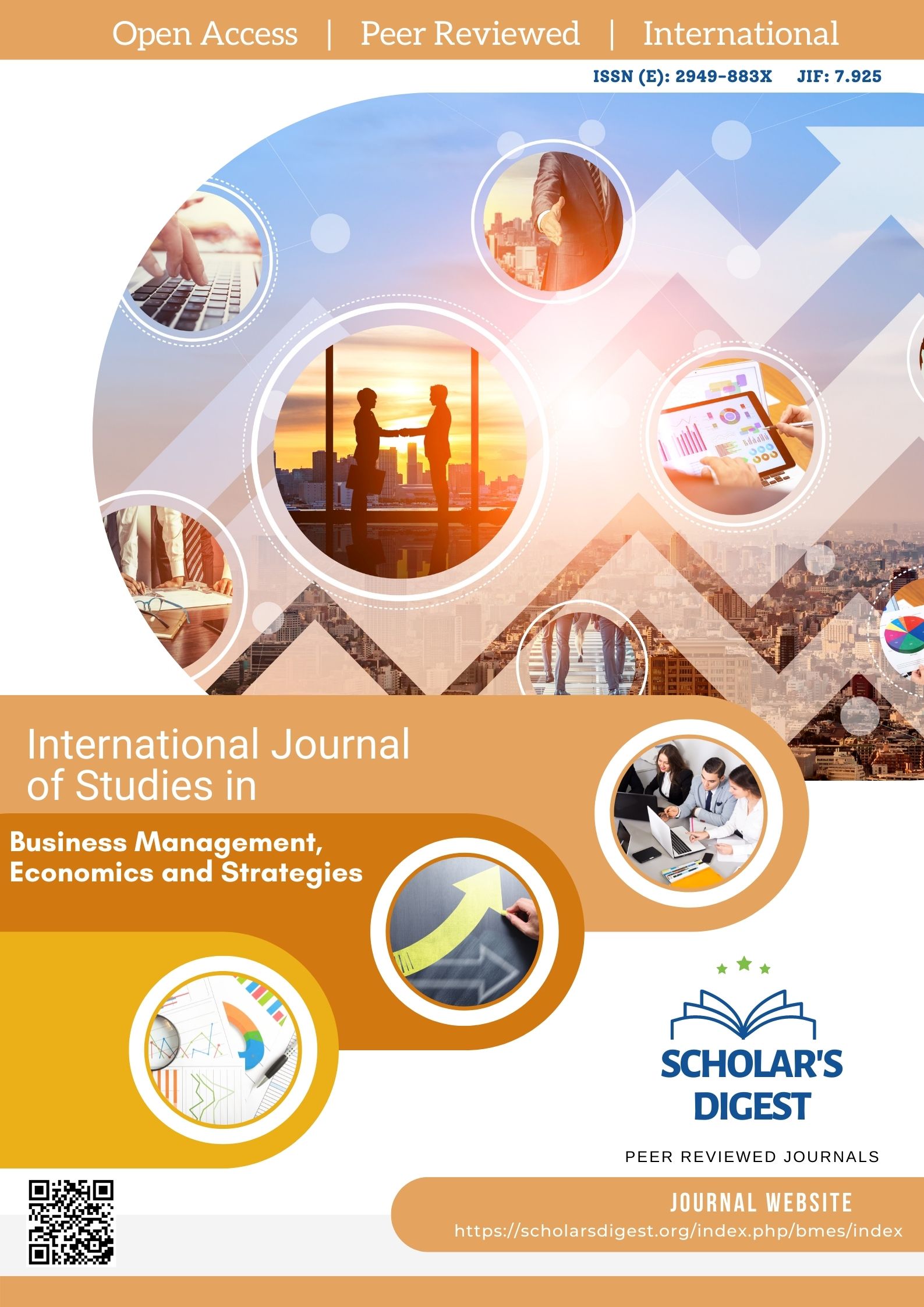THE IMPACT OF THE ROBINHOOD PLATFORM ON THE WALL STREET MARKET CAPITALIZATION INDEX
Keywords:
Robinhood platform, Wall Street Market, market capitalization.Abstract
The study aimed to shed light on the activity of the Robinhood platform, which came to light in the first months of 2013, as the Robinhood platform played a major role in attracting large companies to list on it, which prompted many traders to be among its pioneers and its largest investors. This activity led to a high level of trading on this platform, making it a major player and a major competitor to the largest stock markets in the United States of America. One of the main motivations that prompted the study of the Robinhood platform is the impact and reflection that the Robinhood platform generated on the American stock markets, including the Wall Street market, and what are the tools of attraction that the platform played on its strings to become remarkably active and to be a major player in the world of stock markets. Finance, especially in a financially developed country such as the United States of America. The study addressed two basic hypotheses: - The absence of a significant, statistically significant correlation between the general index of the Robinhood platform and the trading indices of the American stock markets (Wall Street Market), and the hypothesis of the absence of a significant, statistically significant impact relationship between the general index of the Robinhood platform and the trading indices. For the American stock markets (Wall Street Market). The study gained its importance from highlighting the alternatives available to investors when choosing a platform to enter the investment sector, such as traditional platforms and new operators, with a focus on the advantages and challenges associated with them. The study reached a set of conclusions that were based on theoretical and analytical results, the most important of which are: that the Robinhood platform has a positive role in enhancing the democratic character of financial markets by providing commission-free trading and an easy-to-use interface. By lowering traditional barriers, it has become possible for more individuals, including those with limited resources, to participate in the stock market. Thus, the Robinhood platform has opened the door for many individuals to explore investment opportunities and achieve financial inclusion, which contributes to enhancing equality and providing economic development opportunities for all. The study also concluded with a set of recommendations that were built on the basis of the conclusions reached. The most important recommendations are: The necessity of understanding and managing the risks associated with increased market volatility and the behavior of trading and speculators is vital for any investor. Clear investment objectives must first be defined that suit different market circumstances and conditions. Next, the investment portfolio should be diversified across a variety of assets and stocks to reduce the risks associated with market fluctuations. It is also necessary to develop risk management strategies, such as placing stop-loss orders that limit losses in the event of sudden price fluctuations. You can also determine the size of positions to limit exposure to risk, by specifying a specific percentage of capital for each deal. Using these strategies, investments can be protected and the potential negative effects of excessive volatility or rapid changes in the market can be reduced.
Downloads
Published
Issue
Section
License

This work is licensed under a Creative Commons Attribution-NonCommercial 4.0 International License.









